IN-DEPTH |
On Dec. 6, Cass Cavanaugh, a junior elementary education major at Missouri State University, visited Lori Sullivan’s fourth-grade classroom at Wilder Elementary School to lead the students through a grammar exercise. While the class quietly read, Cavanaugh, who uses they/them pronouns, wrote a butchered sentence on the dry-erase board they said a friend had texted the previous night.
It read: “I went, to walmart to buy grosheries, but I forgot mywallet.”
Sullivan was out sick that day, and Cavanaugh, 20, took the lead from the substitute teacher for the duration of an hourlong grammar lesson. Cavanaugh asked students to raise their hands and show with their fingers how many mistakes they spotted in the text, and a lot of fours went up. Cavanaugh then picked students based on random qualifiers — the most recent birthday, the bluest outfit — to come to the board and edit one of the errors.
“You did a wonderful job,” Cavanaugh said at the end of the lesson. “You better be good for the rest of the day.”

Springfield Public Schools officials see in Cavanaugh someone who can lead a classroom while simultaneously addressing teacher workforce and representation issues facing districts across the country. Workforce diversity is a subject that has been part of recent school board conversations and debates as members have worked with the superintendent to reshape the district’s strategic plan. And the program helping Cavanaugh and six others has been central to that discussion.
Cavanaugh is one of seven MSU students who earned $5,000 scholarships from the district through the new Future Educators program, a partnership between SPS and MSU to close a local gap between a diversifying student population and the teacher population.
The MSU students receive college funding from SPS and MSU, which is offering an additional $2,000. The students also pair up with mentors employed by the district, and meet for a set of Saturday seminars throughout the school year to learn from SPS teachers and administrators. In return, the students commit to teaching in the district for the first four years of their careers.
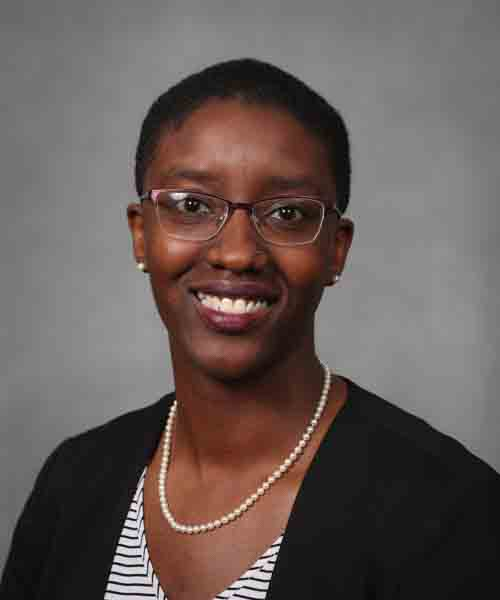
“Each and every one of them has communicated and shown that they are committed to the profession, committed to students and committed to the district,” said Michelle Gavel, an equity and diversity workforce development coordinator with SPS who oversees the Future Educators program.
“We want teachers who are passionate about the field, passionate about teaching. And each and every one of them exhibits that every day.”
Why care?
Across Springfield, Missouri and the U.S., the public school student population is diversifying faster than the teacher population. Statewide, just under 70 percent of the state’s public school students are white, whereas 93 percent of teachers are white. The percentage gap at Springfield Public Schools is lower, but still in the teens.
Future Educators program takes broad look at diversifying SPS teachers
Members of the first set of Future Educators told the Daily Citizen they applied for the program in part so students could see people like them in leadership roles at formative times in their adolescence. The program's champions at both the university and K-12 level said representation is a key factor in improving academic achievement.
“Our student body is diversifying way faster than our teaching force,” said Chloe Bolyard, assistant professor of elementary education at Missouri State University and a former SPS teacher. “And we know when students have teachers who look like them, they're going to be more successful.”

Added Gavel: “We all know that representation matters, and when students see themselves reflected in many different professions and curriculum and in all facets of life, you know that that's important. We just want to make sure that we have some equal representation between the student body and the teachers in a district, and that's a goal you see across districts across the nation.”
The Future Educators program is an effort to address the issue by pooling scholarship dollars from both SPS and MSU for college students who come from underrepresented or under-resourced backgrounds.
The SPS-MSU program takes a wide-ranging look at diversity. The scholarship recipients include students with underrepresented racial, sexual and neurodivergent backgrounds. A straight white man who said he was initially hesitant to apply decided to because he’s interested in teaching at an elementary school, where there are few men leading classes.
“That's just the definition of diversity,” Gavel said. “There's diversity in thought, diversity in experiences. You know, traditionally, a lot of people might think of diversity as one-dimensional, but there's this broad spectrum when it comes to diversity. For example, men are underrepresented in elementary education. If we have teachers who are committed and are passionate about teaching, then we want them to be in Springfield Public Schools. We just offer support in order to accomplish that goal.”
The seven students who earned the first round of Future Educators scholarships are at various stages of their college careers, and one of the seven said the commonality that connects them is their differences.
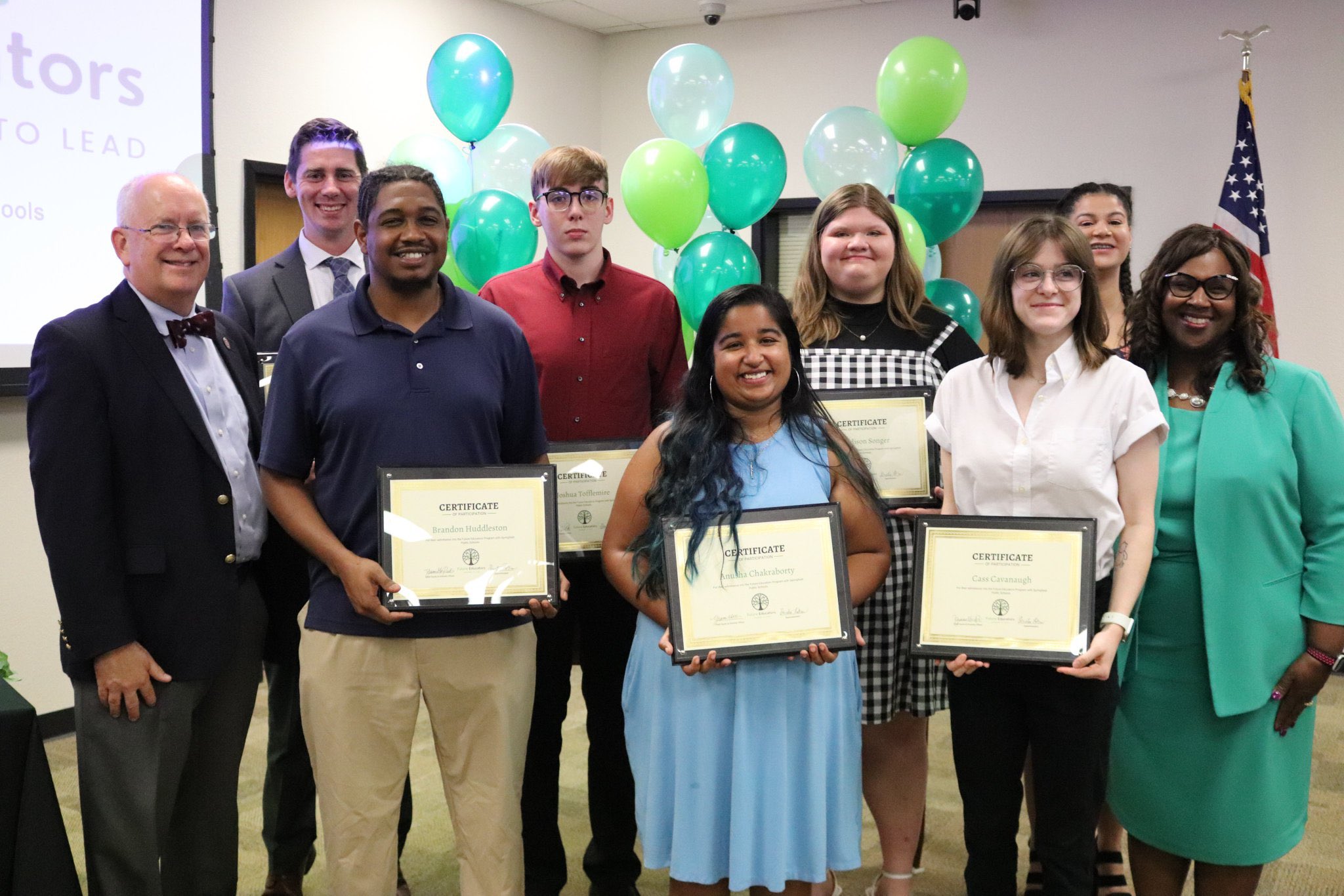
“We're all so drastically different, and we're all coming from such different places,” Maddison Songer said. “I honestly was unsure of how it would go, but I think the main thing that's bringing us all together is just our passion for education.”
The Daily Citizen spoke with four of the seven Future Educators during the program’s first semester to learn what interested them in the program that will link them with Springfield Public Schools for the first four years of their careers.
Addressing the gap
As of 2019, there were 8,887 white students enrolled in teacher prep program courses across Missouri, according to the U.S. Department of Education data. Only 529 Black students and 246 Latino students were enrolled in the same year.
In Springfield, the Future Educators program addresses this and other representation discrepancies by providing up to $7,000 per college school year to students from diverse backgrounds who commit to teaching with the school district for four years. The Future Educators application states that the program helps the SPS “actualize its diversity, equity and inclusion priorities by recruiting, hiring and retaining educators from underrepresented and under-resourced backgrounds.”
SPS defines underrepresented and under-resourced groups as including:
- Students of color, in terms of domestic and international racial and ethnic identities
- Students with disabilities
- English language learners who receive services
- LGBTQ+ Students
- Students who receive free and reduced lunch
- Students who receive services by qualifying as homeless under federal McKinney-Vento guidelines
- Students from diverse religious backgrounds and belief systems
The application also states that it’s not limited to students who see themselves in those categories.
High school students who apply to be Future Educators would receive $2,000 from MSU and $3,000 from SPS per academic year if selected for the program. Current college students receive $2,000 per year from MSU and $5,000 from SPS.
Bolyard said MSU will provide Future Educators with resources to pass teacher certification exams and connect them with SPS mentors who they’ll meet with once a month. And at four professional learning opportunities scheduled throughout the year, they will learn more about culturally responsive teaching, financial literacy, test preparation and community engagement.
‘I’ve just kind of always been part of this district,’ says Chakraborty, a Springfield native who has committed to stay in her hometown
Anusha Chakraborty, a junior elementary education major at MSU, said she made a decision between two career paths when she was a student at Kickapoo High School. As a debate team member, she was leaning toward a law career, but she’d always considered teaching, too. Through the Kickapoo University program, she got to shadow teachers and attorneys. Chakraborty found that she enjoyed working with kids the most. Plus, she said, she wanted students of color to have an experience she said she didn’t have during her K-12 years in Springfield.
“None of my teachers were ever people that looked like me,” said Chakraborty. “And so as a teacher, that's something that's really important to me is for students to see people in different jobs that they might want to do when they grow up. And see people who look like them or have similar characteristics to them. So that's one of the reasons I wanted to be in the Future Educator program.”
Chakraborty said the seven Future Educators in the first cohort share a passion for education, as well as diversity, equity and inclusion. She said she’s enjoyed the two summits the Future Educators have held as a group so far, not only because the subject matter centered on teaching tips and DEI issues, but also because the guest speakers came from Kickapoo and Mark Twain Elementary School, both of which she attended.
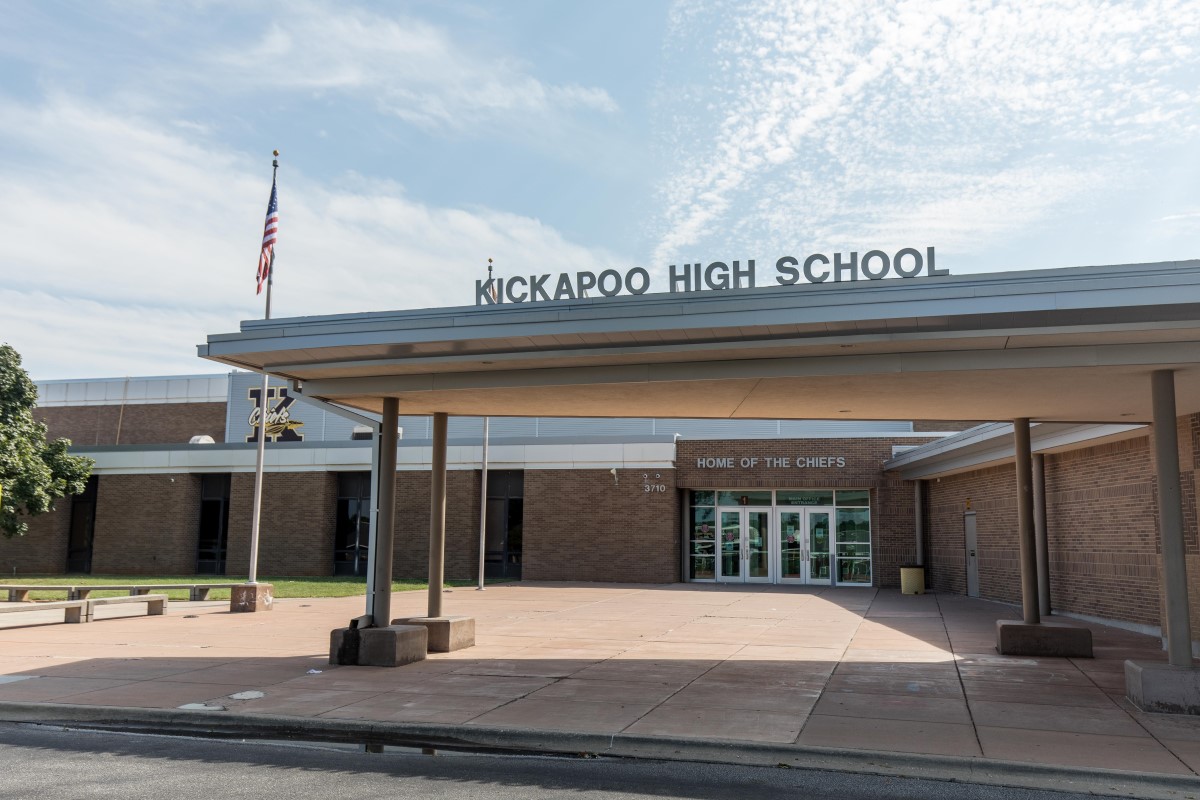
Chakraborty’s mentor through the program is Dawn Snapp, her former third-grade teacher at Mark Twain. Snapp now teaches second graders, which is right around the age that Chakraborty hopes to teach once she’s in an SPS classroom. She said she would love to teach at the elementary school she attended.
Along with shadowing at Mark Twain, Chakraborty is currently working at Kickapoo. She said connections she developed through the Future Educators program helped her get a job as an assistant coach for her former debate team.
“I've never really been one who needs to move elsewhere,” she said. “I'm not really a big city person, and SPS is where I went growing up. And I taught Artworks this summer, so I've just kind of always been a part of this district. So I didn't mind committing at least four more years to it, if not more.”
‘I really want to make a difference in my community’ says one Future Educator
“I applied because I'm a member of the LGBT community,” Cavanaugh said. “I identify as non-binary. I use they/them pronouns. And so I applied, and I was kind of nervous about it. But I eventually got it. And they explained to me that they just really want to grow their own, and kind of diversify Springfield faculty to help kids. It's always helpful to be able to see yourself and people that you look up to, especially at such a young age.”
In the Catholic high school Cavanaugh attended in St. Louis, students were required to perform 140 community service hours.
“I got around 180, I think,” Cavanaugh said. Helping people, Cavanaugh said, is a fulfilling and validating endeavor, and a reason they want to become a teacher.

“I've always loved teaching,” Cavanaugh said. “It's what I'm good at. And I really want to make a difference in my community. And I think it's really important to teach kids critical thinking skills and social skills really early on, and I wanted to ensure that somebody was going to do that.”
When Cavanaugh’s career at SPS begins, they want to lead an elementary classroom.
“I never really got to see teachers like me,” they said. “But I got to see teachers that were diverse in other ways. Because there's more to diversity than just being queer or being a person of color. It's about diverse ways of teaching, like social-emotional learning, veering away from super direct instruction, where you're just kind of talking at the students all day and supporting them in critical thinking, peer-to-peer relationships, community involvement. So I've seen a lot of that growing up.”
At Missouri State, Cavanaugh said they more often saw themself reflected in teachers, “and I'm really excited to be able to do that for my students.”
Cavanaugh, 20, expects to wrap up their bachelor’s degree in May 2024 and then get a master’s in elementary education. Asked what led them to want to commit to four more years in Springfield, the St. Louis native said they’ve adopted the community as their own.
“I've got a family here,” Cavanaugh said. “And I don't know what it is about Springfield that just draws me in. It's like, at times, it's kind of like a little hairless cat that you found on the side of the road. And people are like, ‘Why would you keep that.' And you're like, ‘Hey, that is my hairless cat. It's adorable. That's my love of Springfield.”

Future Educators ‘perfect match’ for student who wants to help others like her succeed in school while managing learning disabilities
An Individualized Education Program is a document developed for a public school student who is in need of special education. Maddison Songer got her first IEP in third grade.
“I have ADHD and two other specific learning disabilities,” Songer said. “So that was pretty early on in an elementary career for them to find that.”
Songer, who grew up in the St. Louis area, said she was categorized as a high-performing special needs student, and recalled lots of testing and being placed in separate rooms from the general student population in the elementary school years that followed.
“I know that there are a lot of students at the elementary age that are in that same situation that don't have the support at home, and they're just confused as to what's happening,” Songer said. “And they feel out of place, and it's a rough place to be — especially where I was, where I was high-performing. It was this kind of floating middle ground where I was frequently told that I was performing the best of the worst students.”
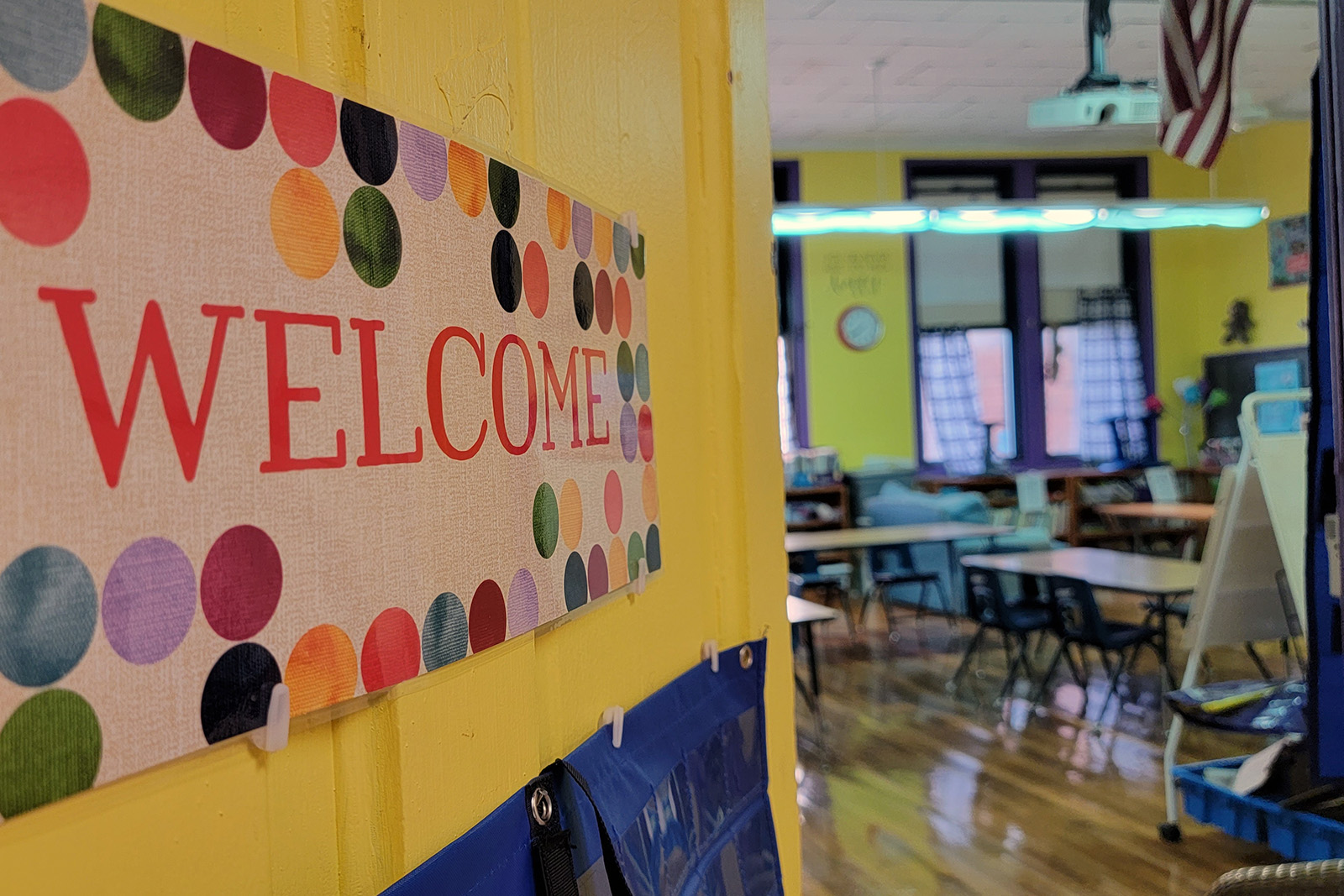
Songer wants to teach elementary students and help lead students like her, and students in general, to be able to stand up for themselves.
“My mom's an electrician and an engineer,” Songer said. “So I was just raised in a means of like, never be the problem — find the solution to the problem. I love just going out of my way trying to find little answers. And, you know, when it comes to seeing individual students have their breakthrough moments through activities that you designed, that's my end goal.”
She said she learned of the Future Educators program last summer at a pivotal moment in her college career, after a semester in which she had dropped several classes. During Songer’s sophomore year, her mom was diagnosed with breast cancer.
Before the diagnosis, Songer had found motivation in thinking about the students she would one day teach. After the diagnosis, Songer’s mom was the motivation. She excelled in school during the semesters her mom received treatment.
“I think it was kind of an adrenaline-type thing,” she said. But once her mom’s cancer went into remission, Songer said she struggled to find purpose.
“I kind of just lost that, and kind of fell into that hole of just not really having anything motivating me,” she said. “So I wanted to get back to my previous place where I always was motivated by the idea of the future students that I'm going to help and the impact that I'm going to make. That's why this program was so exciting to me.”
Future Educators, Songer said, “ended up being a perfect match for me, because I am minoring in diversity studies. So it very much aligned with my values and was something that held a lot of interest for me.”
‘There is an underrepresentation of male teachers within elementary classrooms’ says Future Educator who wants to help change that
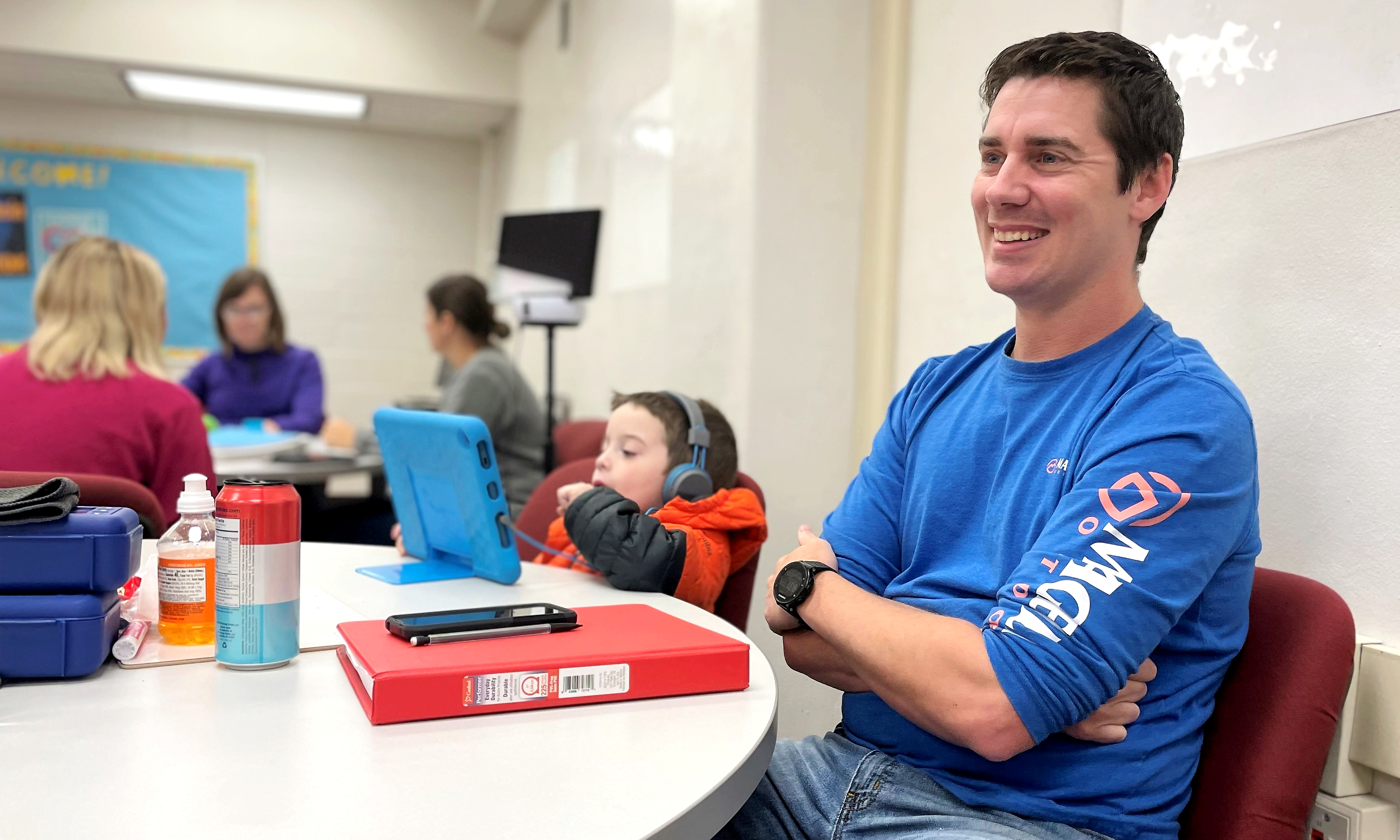
At the beginning of the semester, most of Drew Irwin’s professors sent out surveys asking what accommodations students might need. Irwin, 33, explained his situation in each. His wife is a nurse practitioner at Mercy, and he’s in charge of their sons, who are in fifth grade and preschool, while she’s at work. Sometimes that means he’ll have to join class via Zoom if a kid is sick, and sometimes that means his 4-year-old son Jude will have to come to class with him.
Irwin returned to Missouri State after leaving in the early 2010s a few credits shy of a degree to pursue an acting career in L.A. Acting and teaching had always been the two career paths he charted for himself, and he couldn’t wait any longer to give the acting one a go. But Irwin said the interest in teaching lingered even during years when his acting work was paying the bills. When he moved back to Springfield and started a family, he knew he wanted to go back to school to be an elementary school teacher after his wife finished nursing classes.
“With elementary specifically, I think it's the inner child in me that never went away from being an actor,” he said. “I love being goofy. I love interacting with that younger age range.”
Irwin works as a substitute teacher when he has time to, but was in search of financial aid to avoid having to work a side job to pay tuition. He learned about the Future Educators program from Bolyard.
“The goal of the Future Educators program is to grow their own within Springfield, and that there's something missing in the representation of our students from the teachers,” Irwin said. “And that's a number of different things. That's different cultures, nationalities, genders, sexual orientation. There's a number of different things. Initially, I was a bit hesitant because, it's tough for a white male to look at something that's looking at diversity, and say, yup, I apply to that.
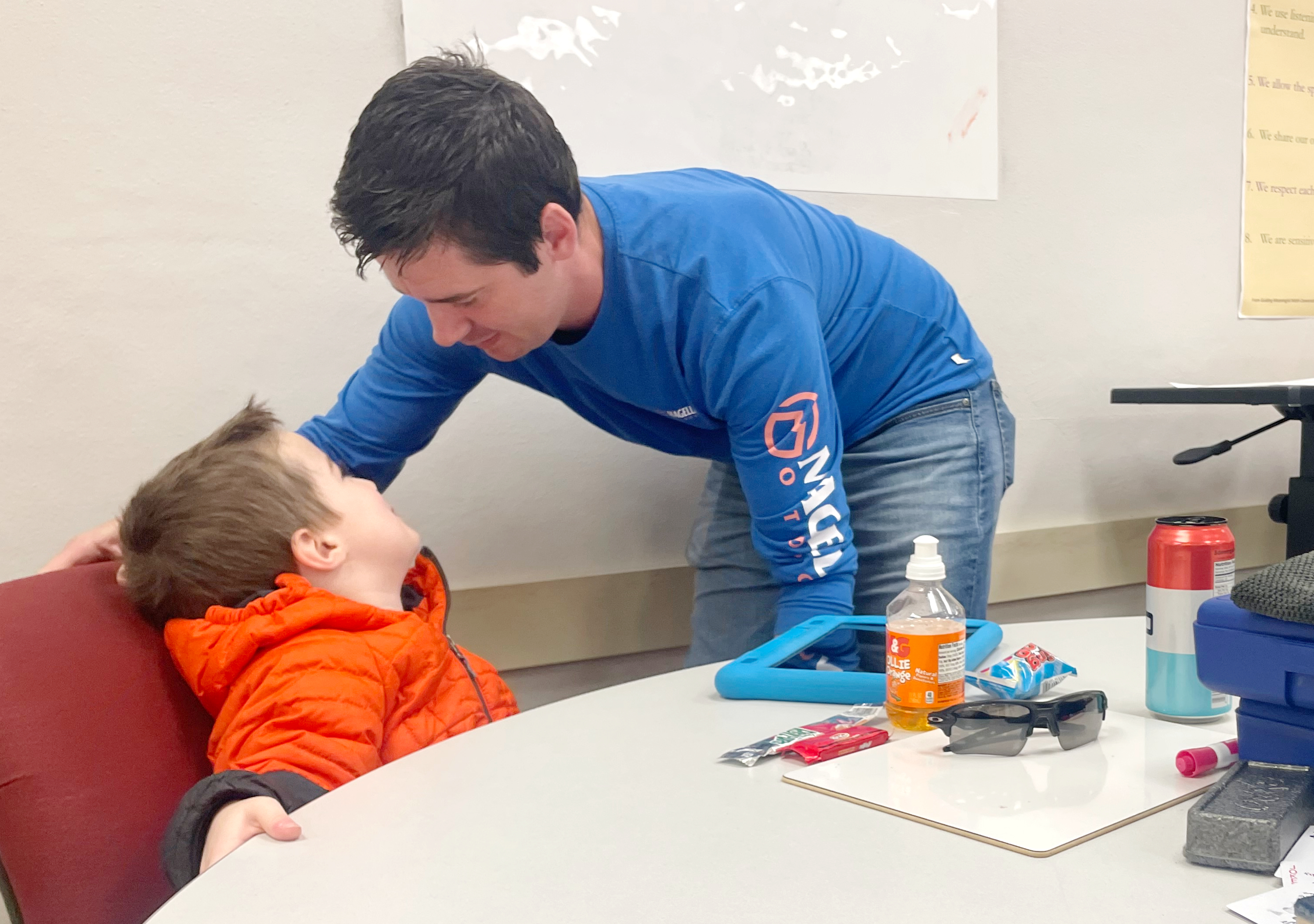
“But I think within the realm of the educational system, there is a strong need for males, particularly in elementary. I started reflecting on my experiences in elementary, and whenever I went through elementary, I don't think I had a single male teacher. There was some things like my parents got divorced while I was at an early age, and my dad moved to Illinois. So there was like a void of that male role model. And I really didn't get that until into high school whenever there were more male teachers to offer guidance. And so whenever I looked at it through that lens, I could see where I would fit into that diversity because there is an underrepresentation of male teachers within elementary classroom.”
Knowing he would have a four-year commitment to teach in a district he already enjoys subbing in is a perk of the program for Irwin, who said he often feels like he wishes he could commit to more substitute hours to help ease the load of teachers he’s come to know.
“I just can't wait to get into the classroom,” he said. “It's one of those situations where I feel like I'm on the sidelines watching what's happening, and I just want to jump in and help. And I'm so close, and I'm appreciative of every opportunity that is given to me to make sure that I'm the best teacher that I can be whenever I do get out there. And that's another big part of this program, with the extra training and mentorship that we have. It's really setting me up to where I am feeling more and more confident that whenever I do get my own classroom, I'm going to be ready.”
Irwin credited the additional meetups, SPS mentorships and training provided through the Future Educators program for bolstering what he’s learning at Missouri State. The seven students in the program have different backgrounds, he said, but share a commonality that was clear during their first meeting as a group in October.
“We want to be better for our students,” he said. “So the energy that was in the room was just amazing. And we tackled some difficult things. How do we change our mindset from looking at students with a deficit mind, saying like, ‘Oh, well, they're this way because of their family, or their home life is struggling,’ and looking at their deficits and changing that to look at their strengths. And I just felt like everybody in that room was on the same page with why we were there, what we're wanting to do. And so because of that, we can just move through tough content, and take risks and put ourselves out there and be vulnerable, knowing that we're all in it for the same purpose. And every one of them is amazing. Everybody that's in this program really is in it to be the best teacher that we can be.”
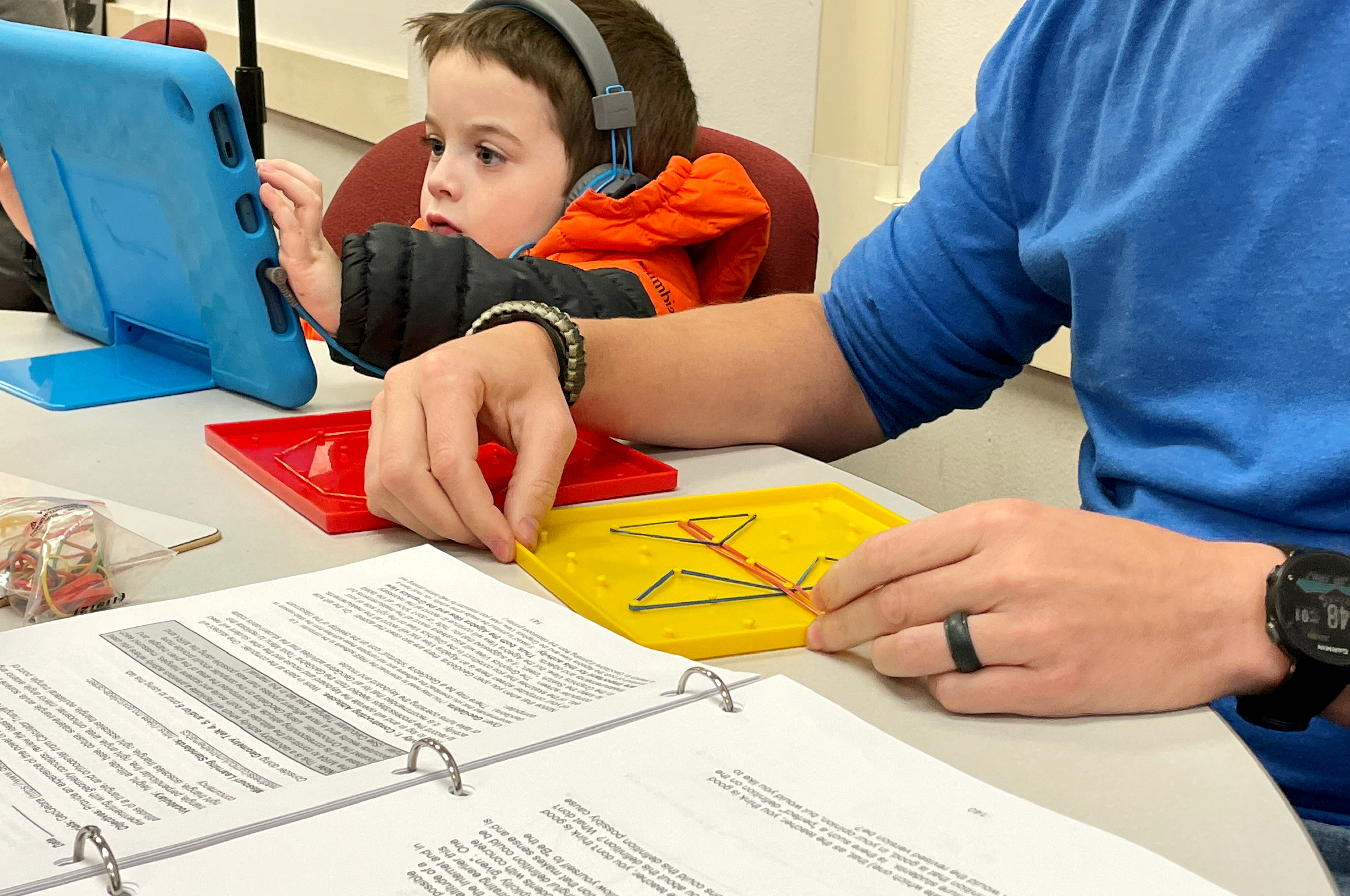
Program’s purpose explained to board members who questioned focus on diversity recruiting at recent meetings
At the Nov. 29 school board meeting, Yvania Garcia-Pusateri touted the Future Educators program during a presentation on the district’s Office of Equity and Diversity.
Garcia-Pusateri, the district’s chief equity and diversity officer, said the program addresses not only teacher shortage issues but also the development of a staff that reflects the student body they serve.
“This is something every district in this country is trying to address, and I’m really excited that we as a district are being courageous as well as creative with the Future Educators grow your own teacher program,” she said.
As with statewide stats, there is a gap between the percentage of students of color and teachers of color at SPS.
“Right now, last time I looked t it, we have about 26-27 percent racially diverse students, whereas we have about 6-7 percent racially diverse teachers,” Garcia-Pusateri said in response to a question by board member Kelly Byrne about the definition of “diverse” when it comes to expanding the diverse workforce.
Bridging that gap, Garcia-Pusateri said, builds a more diverse staff “so that our students have teachers that look like them, that have had similar upbringings, familiar identities and have a shared understanding.” She said that when she was growing up in California, she personally didn’t have a teacher who looked like her until she took a high school Spanish class.
Byrne continued with questions about the program.
“If we’re trying to (develop) the best and most talented workforce, how do you balance that with also trying to manipulate the diverse makeup of the workforce?” he asked.
“We have a lot of diverse candidates that are very talented, but we also follow our protocols within human resources,” Garcia-Pusateri responded. “So for instance, within future educators, there is an application process, an interview process and so forth. So we are following all our guidelines that we would as any other organization. But the focus is, as other school districts have been doing, trying to enhance the diverse workforce.”
At a school board retreat on Dec. 6, Byrne said Garcia-Pusateri’s answer left him wanting more.
“I don’t see how we can be responsible in our hiring practices in an effort to equitably hire the most talented candidates and balance that with trying to manipulate the diversity makeup of our staff,” he said.
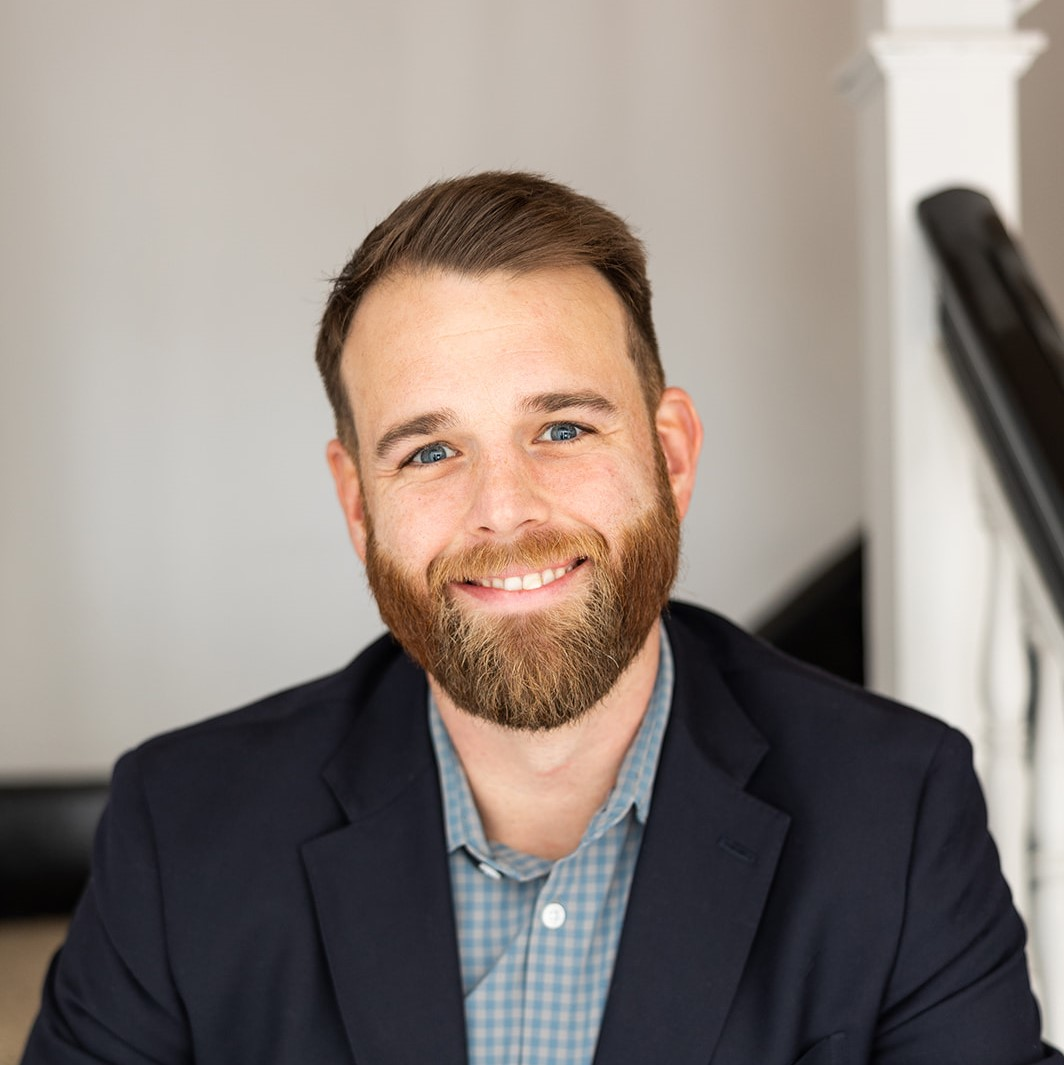
“Based on your response from last time, this really concerns me on signing off on that.
“If that’s what this means, I can’t agree with that. It’s not that it wouldn’t be great for those things to align. It’s that we can’t manipulate it and run the risk of hiring, of overlooking candidates who may be more qualified to try and make that align.”
Superintendent Grenita Lathan took umbrage with the use of the word manipulate.
“It’s not about overlooking candidates,” Lathan said. “I want to address this, because I think the way this is being read is being read differently. We have to be a school district that is attractive to all types of candidates. And knowing that we’re attractive and that we are welcoming, it doesn’t mean we are excluding people.”
Lathan is not only the district’s first superintendent who is a woman of color. She’s also the first woman hired to run SPS. Lathan said she’s had several encounters with young women in the district who hadn’t considered that a woman could lead a school district until they met her.
“It’s not about manipulation,” Lathan said. “It’s about being able to see representation.”
Byrne said he appreciated that Lathan specified that the district is not excluding candidates.
“Of course we want to be open to all and attract the best talent we can into this district and let everyone know that that’s our mission,” he said.
He said staff diversity shouldn’t be a goal, but rather “a byproduct of being equitable in bringing in the most talented staff.
Maryam Mohammadkhani, the board’s vice president, said she agreed with Byrne.
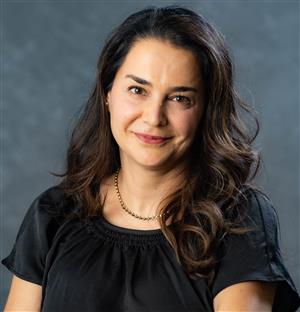
“Diversity is not a goal,” she said. “And I think having come from the West Coast, having been the first physician who had the word ‘Mohammad,’ who came from a different ethnic background, in Springfield, I get it. I’ve been on both sides of this.”
She went on to say that the district’s changing student demographics will naturally precede a change in its teacher demographics.
“This is a natural phenomenon that will occur, and no I don’t think we should force it, because it’s not a goal to be had,” she said. “It’s something that will just happen.”
“As long as they don’t leave our community because we’re not prioritizing diversity,” board member Danielle Kincaid said.
Application process open for second round of Future Educators
The first cohort of Future Educators was supposed to be six students, but Gavel said the district agreed to invest in seven due to the strong pool of applicants. The second round of Future Educators will soon be chosen, and Gavel said the district will pick six this time, including possibly students who are about to graduate from SPS high schools.
“Those of you who know aspiring teachers, lead them our way,” Garcia-Pusateri said at the November board meeting. The application process is underway and the deadline is Feb. 1. The application is available on the SPS website.
Gavel said she’s looking forward to the next cohort.
“It's just been a joy to coordinate the program, just to see these students who have a love for education,” she said. “And their thirst for learning and being good teachers, it's just so rewarding to watch them grow throughout the semester and come together and get to know each other and have that camaraderie in the program, too.”
The first seven Future Educators
Anusha Chakraborty. Chakraborty is an elementary education major who graduated from Kickapoo High School, where she played tennis, performed in the orchestra and competed on the debate team. Chakraborty expects to graduate from MSU in May 2024.
Drew Irwin. Irwin is a post-baccalaureate student with a background in theater who is studying elementary education. He currently substitutes on most Fridays at Springfield Public Schools and expects to graduate in December 2023.
Joshua Tofflemire. Tofflemire graduated from Kickapoo High School, where he participated in the marching and concert bands. He started his college career this semester. He is studying elementary education.
Brandon Huddleston. Huddleston currently works as a paraprofessional at SPS. He plans to major in either elementary or middle school education. A post-baccalaureate student, Huddleston graduated from MSU with a bachelor’s in electronic arts and has volunteered as a teacher for the Black History Summer Academy.
Cass Cavanaugh. Cavanaugh is studying elementary education and expects to graduate in May 2024. Cavanaugh serves as president of Bears Teach Elementary and is in MSU’s accelerated master’s program.
Samantha Johnson. Johnson, a former pre-med student, now teaches at a pre-school while studying to earn her degree in early childhood education. Johnson expects to graduate in May 2023.
Maddison Songer. Songer expects to graduate in May 2024 with a degree in elementary education. Songer recently served as a mentor with the Bears Teach summer program.


